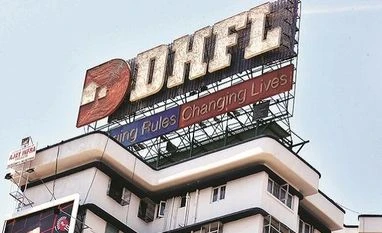The Securities and Exchange Board of India (Sebi) is likely to allow mutual funds (MFs) to participate in the inter-creditor agreement (ICA) of Dewan Housing Finance Corporation (DHFL) through the segregated-portfolio mechanism, also known as ‘side-pocketing’.
According to people in the know, the capital markets regulator is considering giving a one-time relaxation to schemes exposed to DHFL to use side-pocketing. The dispensation could be crucial, given several of the exposed schemes are yet to put in place the provisions required to use the side-pocket mechanism.
Industry officials had earlier said they were yet to receive any formal direction from Sebi on this route.
The people said systemic risks posed by DHFL’s debt pile may have altered Sebi’s view, which till recently had reservations on 'standstill' agreements. DHFL's outstanding debt stands at Rs 90,000 crore, similar to that of IL&FS. Overall, 160 MF schemes were exposed to the tune of Rs 4,200 crore as of May-end, before the DHFL default triggered industry-wide markdowns.
“This one-time relaxation will enable MFs to create a ‘special’ side-pocket for the DHFL’s resolution plan. This will be subject to approval from trustees and be a voluntary option for MFs,” said an industry official, requesting anonymity.
"Finally, MFs will have to take a call on whether becoming part of the ICA is a prudent move, and should look at legal options," the official added. An email query sent to Sebi didn't elicit a response at the time of going press. People in the know said the finance ministry is also likely to give inputs to Sebi.
Industry sources suggested the major hurdle in giving such a relaxation could be the fact that the credit event (DHFL debentures downgraded to below-investment grade) happened 2-3 months ago.
Sebi's December circular on side-pocketing said the decision on side-pocket needs to be taken on the day of credit event. On Friday, DSP MF said it was taking the legal route to recover its dues of Rs 75 crore related to commercial papers (CPs) that matured on June 25.
Responding to a query, the fund house categorically stated it had no intention of disturbing the ICA process.
The fund house added that legal proceedings are related to DHFL’s balance dues it said it would clear in two days from the maturity date. An email sent to DHFL was unanswered at the time of going to press.
According to industry sources, most MFs still prefer the ICA over legal options. "It is possible that more MFs are yet to receive dues related to these CPs.
However, most fund houses feel DHFL needs to remain a going-concern for optimum recovery," said a fund manager, requesting anonymity.
“A long-drawn legal proceeding could adversely impact the resolution process. It may also deter strategic investors,” he added. The CPs in question matured few days before the ICA's reference date (June 29) — the date when lenders refer the borrower for resolution under the ICA.
Among other regulatory requirements, MFs need to incorporate the provision of ‘segregated-portfolio’ in the scheme information documents, along with adequate disclosures, before they can use the side-pocket mechanism.
As the provision of ‘segregated-portfolio’ is a change in fundamental attribute of the scheme, it also requires the scheme to give a 30-day exit-load free window to investors. Further, MFs need to put in place a detailed policy on the creation of a segregated portfolio, which is approved by the trustees.
The regulator’s stance on MFs on ‘standstill’ agreements had put fund houses in a dilemma on whether they could be part of the ICA, given that relaxation of repayment terms was key to the framework.
In June, Sebi chairman Ajay Tyagi had said the regulator doesn't recognise 'standstill' agreements with promoters. Earlier this year, MFs had entered into an agreement with Essel promoters to extend the debt repayment timeline.
“However, with the banking system driving the resolution process and other regulators coming on board, Sebi may have to look at DHFL as a special case,” said a fund manager.
Unlock 30+ premium stories daily hand-picked by our editors, across devices on browser and app.
Pick your 5 favourite companies, get a daily email with all news updates on them.
Full access to our intuitive epaper - clip, save, share articles from any device; newspaper archives from 2006.
Preferential invites to Business Standard events.
Curated newsletters on markets, personal finance, policy & politics, start-ups, technology, and more.
)